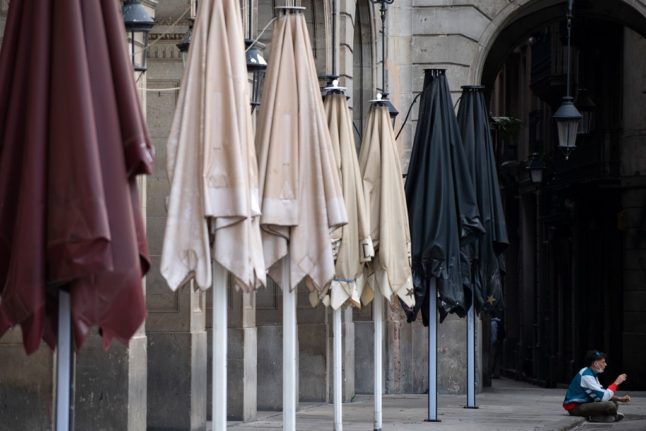The wealthy region centred on capital Barcelona closed bars and restaurants on October 16th, imposed a night-time curfew and partially restricted entry from other regions of Spain as part of measures to fight the pandemic.
But starting Monday, the regional government will allow bars and restaurants to reopen, although only until 9:30 pm and with a limit indoors of 30 percent of their capacity.
Cinemas, theatres and concert halls will also be able to reopen, but with a capacity of 50 percent.
The regional government however has maintained the night-time curfew as well as the limits on movements of people into and out of the region.
“We have managed to change the dynamic of the pandemic without having to resort to a strict lockdown” like the one imposed in March during the first wave of the pandemic, Catalonia's regional vice president Pere Aragones told a news conference.
Like in the rest of Spain, the number of new Covid-19 infections has been falling in Catalonia, which imposed strict virus restrictions which were harshly criticised by local businesses.Spain is one of the hardest-hit nations in the European Union by the pandemic, with over 42,000 deaths and more than 1.5 million cases.
“The situation has stabilised (with a tendency) towards less cases, but the situation remains very worrying, because we have a high incidence rate,” Health Minister Salvador Illa said Wednesday.
READ ALSO:
- When will the new Covid-19 vaccines be available in Spain?
- Are Spain's restrictions winning the battle to flatten Covid-19 second wave?
- LATEST: These are the restrictions in each region of Spain



 Please whitelist us to continue reading.
Please whitelist us to continue reading.
Member comments